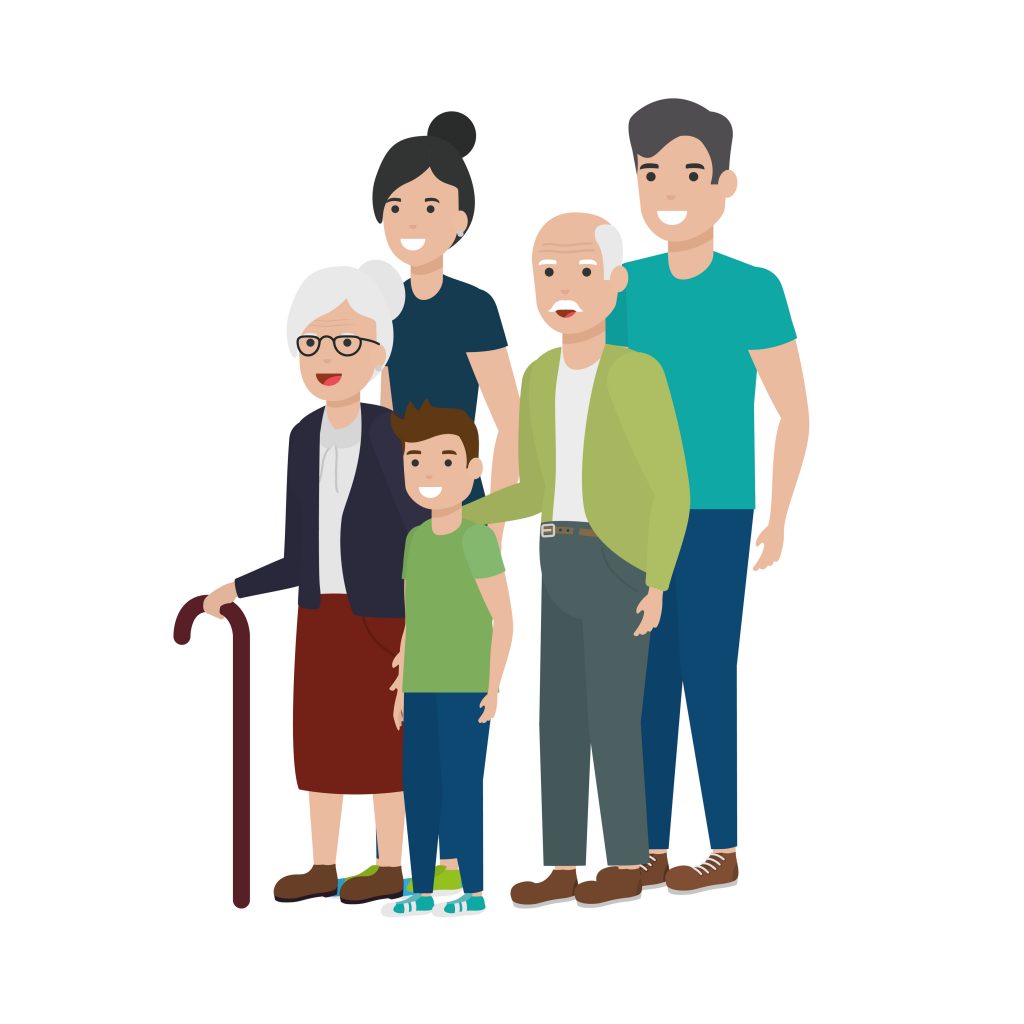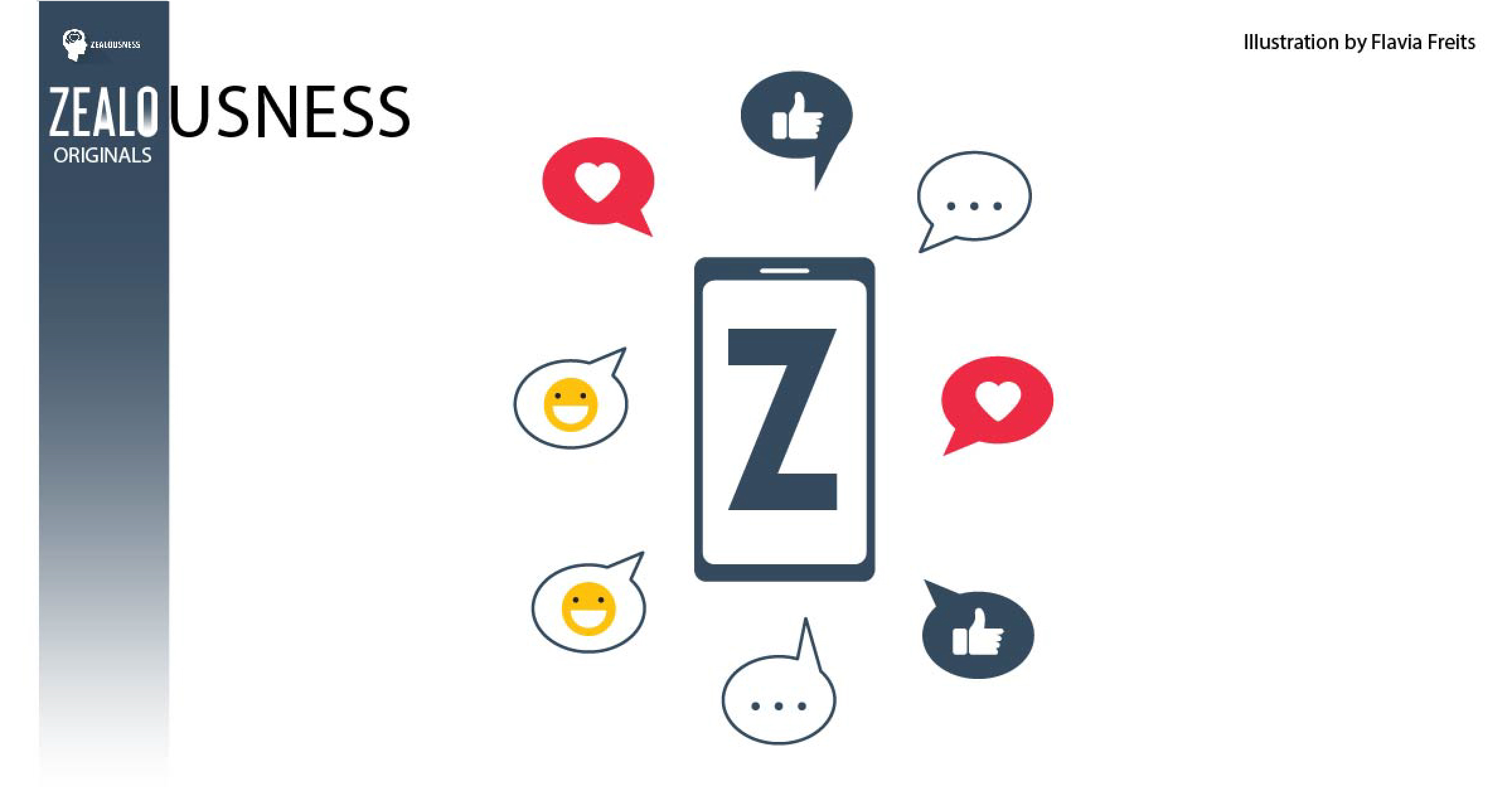-
What is Generation Z.
During every period of time there were different changes and developments that affected and shaped the life of those who lived and grew up under those influences. Every generation of students acquired knowledge according to the methods and techniques developed in the time they lived. Each generation inherited knowledge from the previous generation, and developed it further more during their time, which in turn had to be left as an inheritance to the succeeding generation. It is up to the teachers and academics to understand the needs of the students in order to create a more effective teaching and learning process.
Nowadays, schools and universities have to deal with Generation Z, who are known as Zoomers. They are called digital natives due to the fact that they had not lived before the advent of the internet and had access to digital technology at a young age. These technological effects are more seen in teenagers than younger kids. They have developed characteristics such as well-behaved, abstemious, and risk-averse. They consume less alcohol and have lower pregnancy rates, but not necessarily addictive drugs. On the other hand, this generation is concerned with the academic performance and job prospects.
-
Engaging Gen Z students and learners
Of all five generations, Gen Z is the youngest active in today’s economy. They are the largest generation and made up 40 percent of the US population in 2020. In education, they are all of the students enrolling today. They lived in times of change, especially in technology, forcing universities to adapt to it. They are born with technology, which to them is not a tool, but everyday life. The constant stimulation that happens in their brains due to the access to all world information at their fingertips, made possible by immense technological advancement,has given this generation an eight-second attention span, requiring immediate positive feedback. For them, focusing on a lecture would be torture. They want to be part of the learning process, not bystanders. They tend to be more pragmatic than the previous generations; to them, income and the cost of schooling can change the course of their life or help them to follow their dreams. Because students typically cannot afford to buy physical textbooks, they use digital textbooks, a part of the rapid technological change that students and teachers have to adapt to. It’s okay to also use various tools, for example, an audio enhancer, to tweak your favorite audio books or other tracks.

-
How can teachers adapt to
Generation Z is called digital natives, the first generation who doesn’t know life without technology. This generation considers connecting with the world and gaining access to information at any time. Education is not an exception. Unlike the previous generations, they expect immediate feedback, autonomy in their education, making decisions on what they learn and how they show their knowledge. Instead of replacing technology, it would be better for teachers to use it and adapt to it. Here are five tips for a teacher.
- Use educational software that facilitates the teaching-learning process and engages students. A teacher can apply interaction presentations to educational games.
- Start a conversation because long lectures do not work for Gen Z, who cannot stay focused for a long time. Furthermore, they are used to multitasking and skimming of information.
- Use visuals, such as charts, graphics, and multimedia to make the lesson more memorable
- Hold online office hours for students. An instant message is likely more effective and parents of younger children can reach out easily when setting an appointment.
- Gen Z Students always update their newsfeeds with the most recent information. For this reason, it would be better to explain how the lecture can be applied in the real world and why.
Having different individuals requires discussing different viewpoints in order to have a consensus. Educators need to support the diverse population. They have to explore their own culture for a better identification of personal biases and recognition of their own culture. This cannot happen without trying to understand other cultures, how students see themselves and the rest of the world. Including diverse literature enables students to identify with the material and promote cross-cultural understanding.
-
Generation Z mental health
Unlike the previous generation the Millennials and Gen Xers, Generation Z has experienced more cyberbullying incidents, sexual assaults, and mass shootings. These and other factors have led them to more stressful lives and, as a consequence, stress disorders and attempted suicides. Compared with the previous generation, they have a higher rate of consulting a mental health therapist. They have to cope with stress, lack of motivation, and stress-related physical or emotional symptoms. Money and work are the top stressor factors for adults overall with housing instability, personal debt, and nutrition among them as well. Current political events are obviously stressful for all, but for Generation Z they have a stronger emotional impact because they cannot control these events.The political events cause stress for most of the US population, making them feel somewhat insecure and forcing them to engage in political events. Nearly half of Americans strongly believe they have to support causes of importance to them. While discrimination has always been due to nationality or race, causing a category of people more stress than the privileged category of other people.
-
Final thoughts on Generation Z.
Every generation has developed characteristics that define who they are and what they aim to do. So, as with every generation that preceded them, Generation Z has developed its defining characteristics. They are financially focused, unlike their predecessor, Millennials, who simply loved what they did. Generation Z considers financial income crucial after having seen their parents lose their savings during the market crash and recession in 2008. These factors have led them to become more entrepreneurial. They wrack their brains to find good ideas or inventions such as apps to become millionaires. Because they are born during the technological era, they are all about technology. Every kind of information and encyclopedia is just a click away. Social media, such as Facebook, Twitter, Instagram, have enabled virtual connections with people, but they still have face-to-face contact as well. They still enjoy meeting other people. Generation Z is very competitive in all walks of life, whether it may be in school or highest paying jobs, they tend to be the best in everything. They are adaptive to change and welcome it in their life. Due to the vast information they gain access, they tend to seek new ideas and experiences and evaluate them. They rather prefer to work independently compared with their predecessors who relied on others. They want success and control over their destiny. They may lack experience but still they can contribute in the workplace. The access of too much information has created their opinions, which they believe need to be heard. Besides the fact that this generation is pretty young in age, and technologically savvy, Generation Z is unique in itself compared with what their previous counterparts were. Their life experiences, challenges, the environment, technological advancement, and many other factors have modeled them in what they are, but time will tell what they will be and the succeeding generation as well, the Generation Alpha.
References
- 3 Generation Z traits today’s teachers need to adapt to. BRANDMAN UNIVERSITY. May 04, 2020. https://www.brandman.edu/news-and-events/blog/generation-z-traits-teachers-need-to-adapt-to
- Bethune, Sophie. Gen Z more likely to report mental health concerns. AMERICAN PSYCHOLOGICAL ASSOCIATION. January 2019. https://www.apa.org/monitor/2019/01/gen-z
- Clark, Dave. 10 Defining Characteristics of Generation Z. TTI SUCCESS INSIGHTS. JAN 16, 2019. https://blog.ttisi.com/10-defining-characteristics-of-generation-z
- Generation Z, from Wikipedia free Encyclopedia.. https://en.wikipedia.org/wiki/Generation_Z
- Kalkhurst, Dillon. Engaging Gen Z students and learners. Pearson. March 12, 2018, https://www.pearsoned.com/engaging-gen-z-students/
- Moore, K. Engineering Education For Generation Z – ERIC pdf, https://files.eric.ed.gov/fulltext/EJ1162924.pdf
Additional resources
- What Gen Z Looks For In A College, Army & Navy Academy, What Gen Z Looks For In A College | Army And Navy Academy























